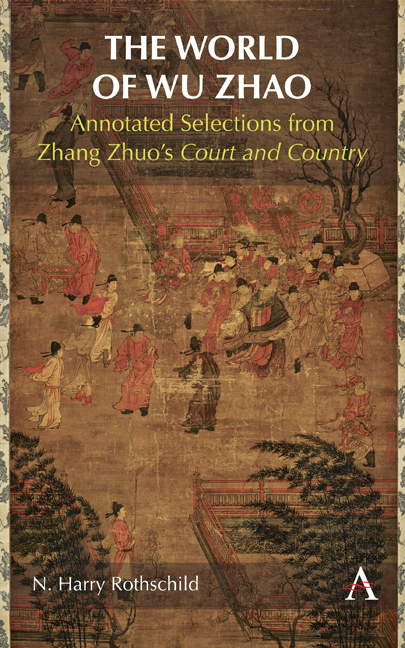Book contents
- Frontmatter
- Dedication
- Contents
- Acknowledgments
- Figures
- Map
- Tables
- Weights and Measures
- Introduction
- Chapter 1 Wu Zhao: her inner palace, her inner circle
- Chapter 2 The culture of the court
- Chapter 3 “Cruel officials”: Wu Zhao’s “teeth and horns”
- Chapter 4 Beyond court and capital: local officials
- Chapter 5 The common people
- Chapter 6 Relationships: men, women, and family in the time of Wu Zhao
- Chapter 7 Generals and military men
- Chapter 8 The frontier and beyond: foreigners and others during Wu Zhao’s reign
- Chapter 9 Religion and the supernatural world
- Chapter 10 Flora, fauna, and the natural world
- Afternote
- Appendix: People and Places
- Notes
- Bibliography
- Index
Chapter 5 - The common people
Published online by Cambridge University Press: 15 November 2023
- Frontmatter
- Dedication
- Contents
- Acknowledgments
- Figures
- Map
- Tables
- Weights and Measures
- Introduction
- Chapter 1 Wu Zhao: her inner palace, her inner circle
- Chapter 2 The culture of the court
- Chapter 3 “Cruel officials”: Wu Zhao’s “teeth and horns”
- Chapter 4 Beyond court and capital: local officials
- Chapter 5 The common people
- Chapter 6 Relationships: men, women, and family in the time of Wu Zhao
- Chapter 7 Generals and military men
- Chapter 8 The frontier and beyond: foreigners and others during Wu Zhao’s reign
- Chapter 9 Religion and the supernatural world
- Chapter 10 Flora, fauna, and the natural world
- Afternote
- Appendix: People and Places
- Notes
- Bibliography
- Index
Summary
AMONG THE “FOUR PEOPLE” (SIMIN 四民), scholar–administrators, the literati, ranked highest (not surprising, as they were the architects of the hierarchy); peasants, who produced the food to sustain the empire, ranked next; artisans and craftsmen, who created clever and useful things, were third; and merchants, who moved and sold commodities, profiting off the labor of others, were last. However, this theoretical classification with deep Confucian roots had little bearing on social, economic, and political realities. Court and Country contains many accounts of the lives of common folk outside the ranks of the officialdom, offering curious glimpses of lives and livelihoods around the empire.
PEASANT-FARMERS
The hospitality of the common people
Chinese hospitality (hao ke 好客)—literally meaning “enjoying having guests” or treating guests well—knows no boundaries. This generosity is reflected in the following account from Court and Country:
Wei Hao, a county official, went out into the countryside and stopped at the home of villager Wang Xingzai. When he was resting there, he dreamed that a woman clad in black was leading a dozen or so children wearing yellow. All of them repeatedly kowtowed and asked him to spare their lives. Hao felt very unsettled about the matter and, upon waking, urged the Wang family to hurry up and prepare a meal. One of his travelling companions informed him, “Wang Xingzai’s family is poor. They don’t have the means to lay out fine delicacies— just a broody hen sheltering a nest of eggs; she’s already been laying for more than ten days. Now, he’s about to kill her!” Hao suddenly realized that the black-clad woman was none other than the black hen, then instructed Wang to let her go. That night Wei Hao had another dream in which the woman and children all thanked him and then departed. (4.100)
In hosting an honored guest, families will go to extremes, taxing their paltry resources to put on a good face. Thus, when a county official and his attendants stopped by a Wang’s homestead—a once-in-a-lifetime or once-in-a-generation occurrence for the family—they intended to pull out all the stops by killing their only hen so that they might lay a sumptuous feast, though doing so would mean losing the entire brood on which the hen was sitting.
- Type
- Chapter
- Information
- The World of Wu ZhaoAnnotated Selections from Zhang Zhuo's <i>Court and Country</i>, pp. 99 - 118Publisher: Anthem PressPrint publication year: 2023

